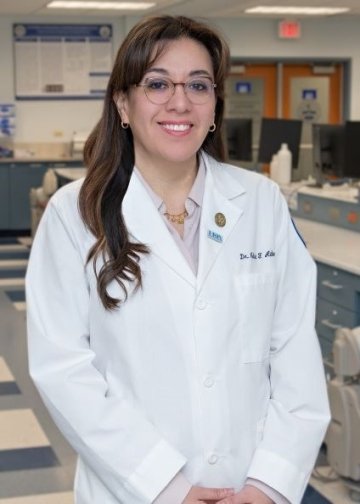
"When I became interested in medicine after learning about the human heart in school, I was inspired to pursue medicine so that I could provide this skill to help care for and heal people."
What inspired you to pursue a healthcare career?
I have always thought highly of skilled jobs in which workers are able to create something simply from the knowledge and skills their minds and hands possess. When I became interested in medicine after learning about the human heart in school, I was inspired to pursue medicine so that I could provide this skill to help care for and heal people. Osteopathic medicine aligns perfectly with me, as it extensively trains in hands-on techniques.
How did your background and history factor into your career choice?
I knew little to nothing about the medical field before doing my own research into the requirements of becoming a physician. I have no family members in medicine, but I was inspired by the specificity and high gauge of training that medical students and residents receive. My older sister also inspired me to continue on into a graduate program, as she completed a master's and doctorate degree in School Psychology, which were no small feats.
In what branch of the military do you serve and at what rank?
I am a Second Lieutenant in the United States Air Force. Upon graduating from medical school, I will be promoted to Captain, along with my fellow Air Force and Army Health Professions Scholarship Program (HPSP) peers.
Why did you choose to serve, and how did that influence your journey into healthcare?
I have always admired our service members and the sacrifices they and their families make to keep us safe. I come from a military family, with my father graduating from the Naval Academy and serving as a Commander in the US Navy, and my grandfather who was a Brigadier General in the US Army. I had considered ROTC while attending the University of Arizona but would not have been able to graduate early had I joined at the time. When I learned about the HPSP, I had a renewed motivation to join the service, given the great opportunity and support the military gives its medical professionals. I believe that having the privilege to serve our country as a physician motivates me in ways that words cannot describe. I certainly would still pursue medicine regardless of my military status but having it as my end goal has been a large part of my success.
Why did you decide to attend Midwestern University?
I first (knowingly) encountered a fourth-year Midwestern student on his rotation at the clinic in which I scribed. His knowledge, demeanor, and eagerness to learn made a lasting impression. While I know that most of those qualities are inherent to the individual and not necessarily attributed to the institution, I always held Midwestern in high regard because of him. When it came time to choose a medical school, this interaction ultimately helped guide my decision.
How does Midwestern support active service members and veterans?
Midwestern has a large military presence, with double to triple the number of HPSP students as other medical schools around the country. This not only allows us to maintain a robust Student Association of Military Osteopathic Physicians and Surgeons (SAMOPS) but also volunteer in our community with the help and support of Midwestern. Student Services goes above and beyond to reach out to our club for collaborative events and helps us set up military appreciation events whenever possible. The Finance office is also a great help when it comes to coordinating tuition payments directly with the military, which takes a huge weight off our shoulders. Lastly, our wonderful faculty advisors, Major Julie Browne and Major Annette Gawelko, are always available to assist and guide us as we traverse the complicated world of military regulation, common courtesies, and civilian versus military medicine.
What about a Midwestern University education do you want to carry forward in your career?
Midwestern University has a way of creating bonds between complete strangers. As with many medical schools, Midwestern’s Arizona College of Osteopathic Medicine is rigorous and is not for the faint of heart; however, it helps you discover that you can rely on the friendships you cultivate. I hope to carry this aspect of pushing myself beyond my capabilities because of the friends and peers who show me that it is possible.



